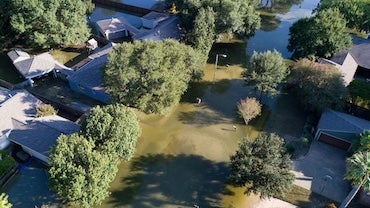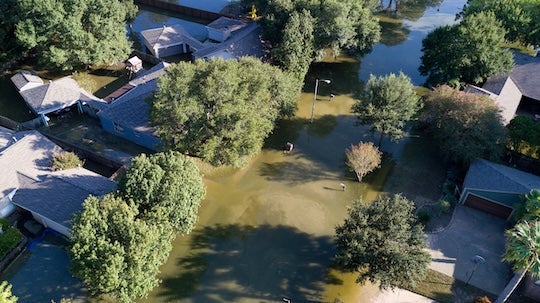A new Rice University study of one middle-class community ravaged by Hurricane Harvey in 2017 finds that affected individuals were less likely to accept offers of support over time, even when they could use a helping hand. As the long road to recovery after hurricanes Helene and Milton begins, the same questions about whether to seek out and accept help are facing many communities across the Southeast region of the United States.
"A Rapidly Changing Ecology of Aid: Accepting Help and Stigma in the Aftermath of Disaster,” appears in a recent edition of Qualitative Sociology. The researchers conducted multiple waves of interviews over a two-year period following Harvey to track changes in attitudes toward accepting help among affected residents.

“In the immediate aftermath of the storm, we found residents were more willing to ask for and accept help from their social networks and local institutions due to the abundance of offers from their community,” said Anna Rhodes , an assistant professor of sociology at Rice and the study’s lead author. These offers of assistance are part of what Rhodes calls “the local ecology of aid,” which shaped whether the middle-class households in this study viewed accepting help as appropriate.
“As time went by, offers of help diminished,” Rhodes said. “We found that as this happened, affected individuals grew more concerned about the stigma of seeking and accepting help — even when they were still in need.”
For middle-class residents in this study, who frequently described themselves as giving rather than receiving interpersonal aid before the storm, many began to reject offered aid or refused to seek further assistance when the offers faded.
“Many of the individuals in our study felt like there were people in greater need, and as a result, they were reluctant to ask for help, especially as time went by,” Rhodes said.
However, the unequal recovery of residents following Harvey led to increased vulnerability and reduced ability to bounce back. Rhodes said this highlights the need for sustained aid and a broad recognition that recovering from a storm is a very long process for most households. Both can help create a local community aid environment that encourages households to accept and seek out available aid when they need it, rather than worrying about shame or stigma for accepting assistance.
“Local networks and organizations play such a critical role in helping people recover from climate-related disasters,” Rhodes said. “Better understanding these dynamics is really important for building, and rebuilding, strong and resilient communities.”
Rhodes said she hopes future research will expand and refine the approach to understanding how people seek and accept help over the full length of the recovery period after a disaster.
The study was co-authored by Max Besbris from the University of Wisconsin-Madison and is online here.

